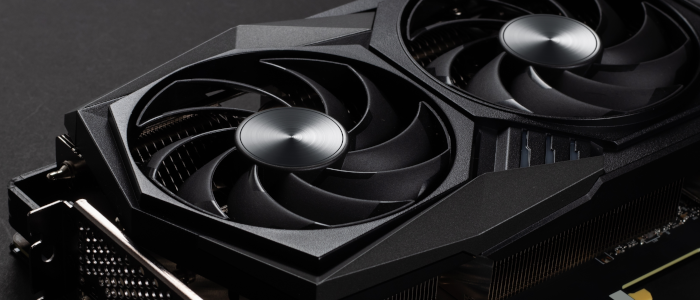
Sorted by category:
High Performance Computing

2024-12-06
Four European supercomputers in the top 10, but how relevant is that?
The top 10 of the November 2024 list of supercomputers is very much a western affair, all coming from the US, Europe and Japan. But in fact, if China’s fastest supercomputers were listed, they would be third and fifth on the list. And the commercial sector is building machines that are even faster than the number one.
Read more

2024-09-02
Computing for a sustainable future
Every year, humanity uses some 40% more of the earth’s resources than the earth can sustainably supply in that year. Clearly, this cannot go on forever. Awareness of this is growing and major transitions are starting to take shape. As an expert in developing computational software, VORtech sees an important role for itself in developing the software for computing and simulation that is needed to make these transitions. We are happy to see this already reflected in our client portfolio.
Read more

2024-01-09
GPGPU: the workhorse for demanding computations
If runtime is a problem for your application, then the use of a general-purpose graphics processing unit (GPGPU) can be a solution. GPGPUs can sometimes speed up computations by an order of magnitude. As an extra advantage they use far less power per computation. But exploiting their computational power is not always easy and only works for applications that meet specific requirements.
Read more

2023-10-20
How will Machine Learning change Computing and Simulation?
The launch of ChatGPT made the world aware that Machine Learning will fundamentally change the way we live and work. The field of computing and simulation will be no exception. But it’s not just ChatGPT: there are other innovations from machine learning that are bringing exciting changes for computing. In this blog, we’ll explore the potential of this new technology.
Read more

2022-09-06
Experiments with simple model-order reduction methods
Model-order reduction is a powerful technique to speed up simulations. It can be used to solve performance issues in applications like design optimization, model-based predictive control, or digital twinning. In this blog, we’ll give a very basic introduction to these techniques and describe some experiments that were done at VORtech by two interns at VORtech, Floris Roodenburg and Abinash Mishra. They could speed up calculations by more than a factor of ten.
Read more

2018-11-29
Mathematical Modelling of Burn Injuries
Burn injuries can have a radical impact on someone’s quality of life. A burn injury in the neck, for example, can cause a contraction that makes it impossible for someone to lift his or her head.
Complications such as hypertrophic scars and contractions can occur as the result of burn injuries. In the first-place, hypertrophic scars cause aesthetic problems. In the case of hypertrophy, the scar is thicker and more elevated than normal. The second class of complications, an excessive contraction, often causes reduced mobility of the joint of the patient.
Read more

2018-02-16
Pushing finance to a higher level with scientific software engineers
Since the credit crisis, banks and insurers have become a lot more cautious. This can be seen from the financial models that are used: they are getting increasingly more ingenious and complex, partly due to new insights and stricter regulations. Risks of products are better assessed, more advanced investment strategies are implemented and more aspects are included in order to assess the financial market more realistically. The tendency is that more and more highly skilled engineers are hired to support this complex matter. These technical experts prove their value in finance. In this blog, we will go into this further based on a number of relevant finance projects that have been carried out at VORtech,.
Read more

2016-04-13
The past, present and future HPC platform
Wat is er de afgelopen 10 jaar gebeurd op het gebied van de hardware voor het grotere rekenwerk, oftewel de High Performance Computing (HPC)? En wat staat ons de komende jaren te wachten? We gingen in gesprek met twee systeembouwers en we kregen van hen een vogelvlucht perspectief van de ontwikkelingen in HPC-platformen.
Read more

2015-12-14
High Performance Computing: converging or diverging?
Is High Performance Computing converging or diverging? Will there be generic HPCexperts or does each platform require its own expert?
Read more

2015-10-22
Paper on HPC software tool for climate research
An HPC software tool Par@graph has been developed to analyze the very large climate networks by the LINC project, funded by EC’s Marie-Curie ITN program.
Read more